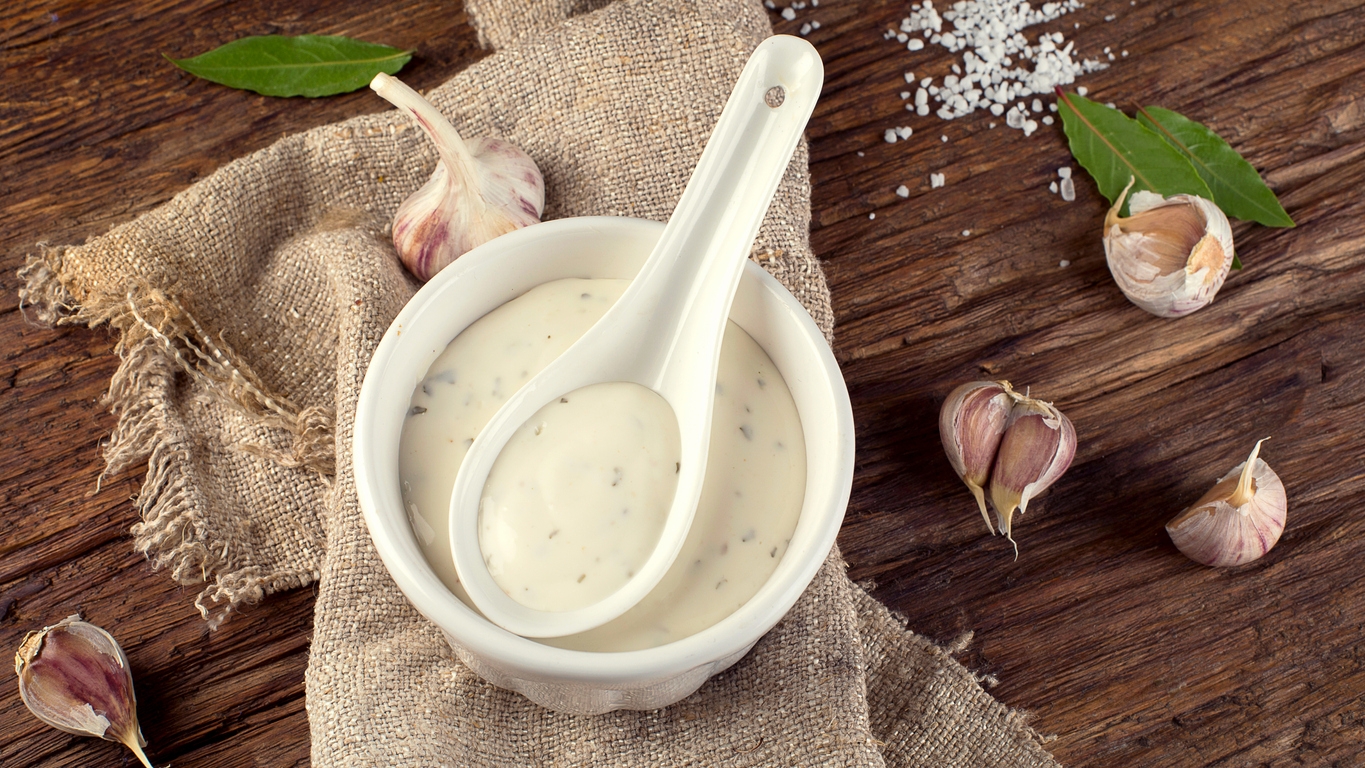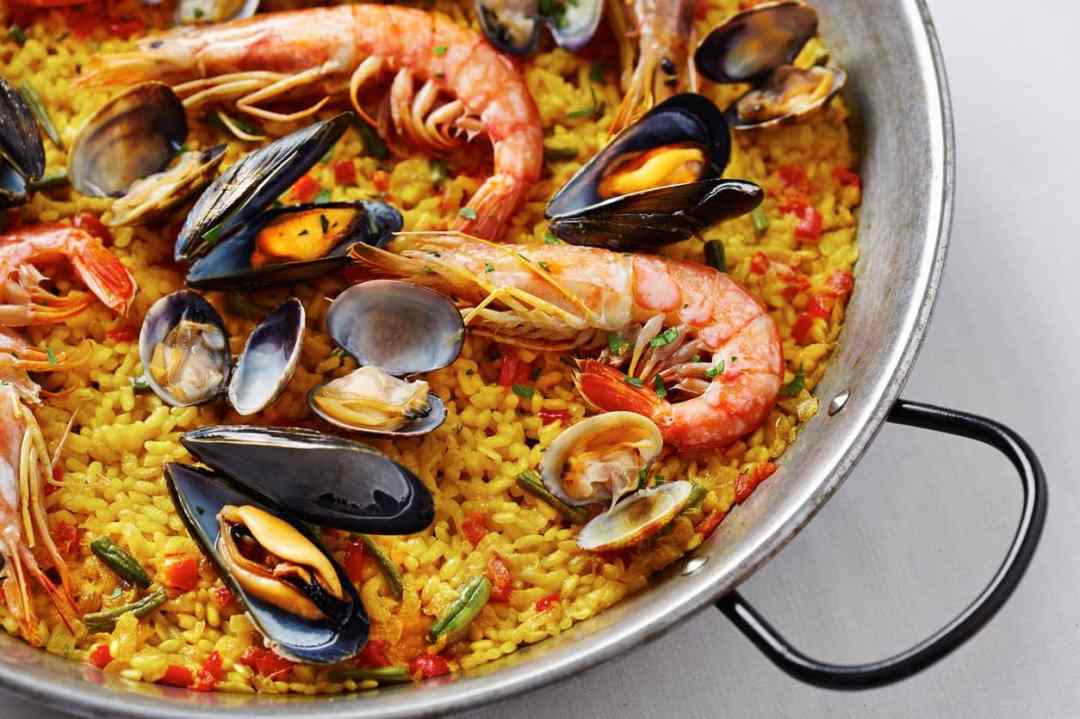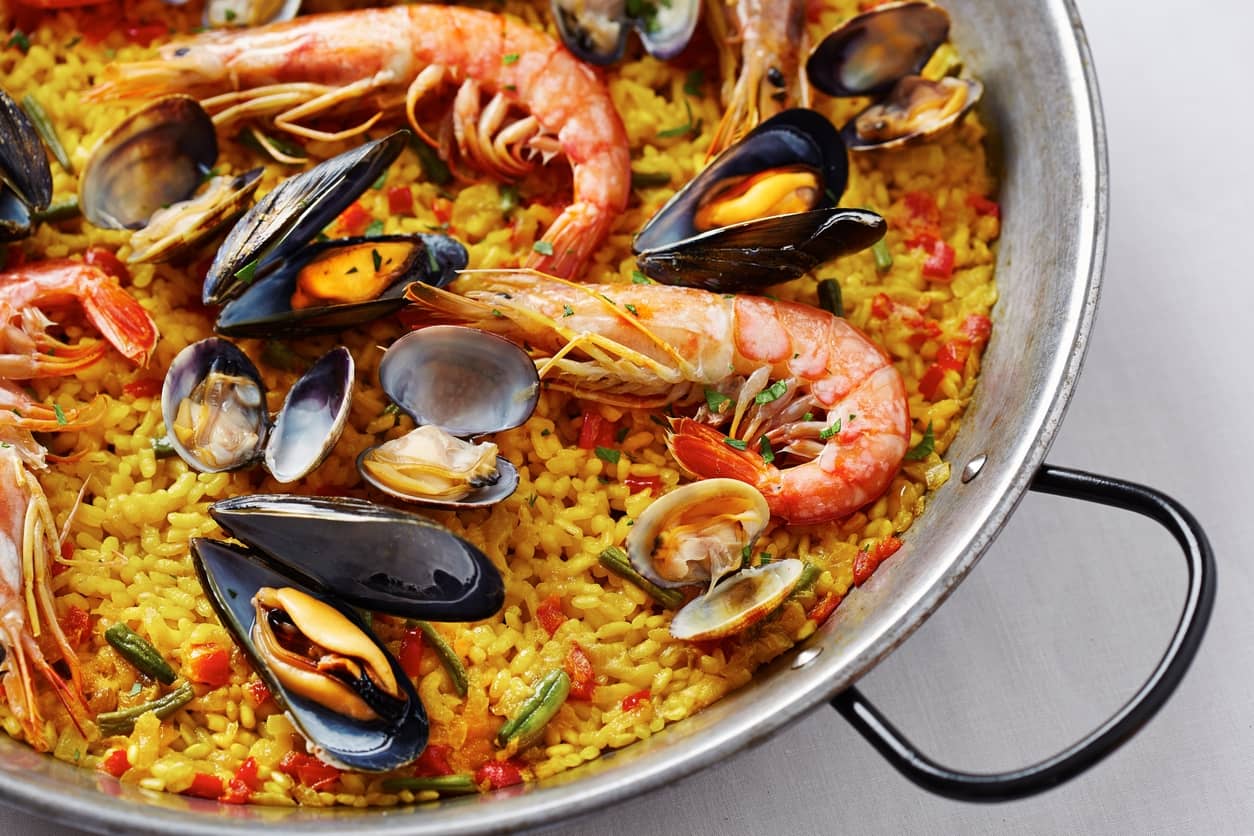The UK has something of a reputation for butchering those classic European dishes on which entire cultures seem to be founded. Think spaghetti carbonara creamy enough to make an Italian weep or the kind of rubbery, watery beef bourguignon that is the culinary equivalent of our grizzly, grey weather to any self-respecting Frenchman or woman. But perhaps no dish is more maligned or widely miscooked than Paella.
Certainly, we’re not helped in this respect by our celebrity chefs. And the usual suspects are at it again – Jamie Oliver reportedly received death threats for adding chorizo to his version and Gordon Ramsay followed suit, eliciting a similar reaction. It’s also not worth thinking about how wrong the versions which litter our supermarket shelves are (yes, that does even mean the Charlie Bigham’s).
Our long history of these kinds of offences led Spanish journalist Josep Pla to remark: ‘The abuses committed in the name of Paella Valenciana, are excessive – an absolute scandal.’
So on World Paella Day (20 September) perhaps it’s time to right some of these wrongs and lower the collective blood pressure of a nation.
Firstly, like tandoori and tagine, paella takes its name from the wide shallow pan in which the dish is cooked. If possible, it should be cooked on an open fire using Bomba Rice (this ingredient is crucial). The classic version comes from Valencia and features green beans, chicken, butter beans, rabbit and sometimes is seasoned with rosemary leaves – this is called the Paella Valenciana.
Quique Dacosta, a chef from Alicante, whose eponymous restaurant in Denia (a small city on Spain’s east coast) has three Michelin stars says, ‘Within the Valencian community there might be more than 325 different paella recipes but an authentic recipe will always respect the main products of the region.’
Dacosta’s favourite version is ‘Arros a banda’ (note the word paella isn’t used) which uses de-shelled seafood. His earliest memories of cooking the dish, like many from the Valencian province, are of Sundays spent with family and friends, sharing a paella over a wood fire.
Many of the best dishes around the world have their origins in labour and paella is no different. It was first cooked at lunchtime on farms, made with rice and whatever else was to hand. This explains why there are so many versions. Traditionally, the dish should be eaten straight from the pan with each person using their own wooden spoon.

London is arguably one of the world’s greatest food cities but, still, there’s a dearth of restaurants specialising in paella. Even so, one of the most reliable haunts is Arros QD in Fitzrovia, which is also the brainchild of Dacosta.
At Arros the paella is a thinner affair than we might be used to. Less pillow-y mounds of rice and more a layer of roasted, caramelised rice laden with a variety of meats, seafood or vegetables. There are ten varieties at the restaurant ranging from the classic Valenciana with rabbit chicken, Garrofo beans and rosemary to one laden with Tomahawk steak and another with Canadian lobster.
‘If you are cooking rice in a paella which features lobsters, shrimp, chicken, rabbit, Iberico pork or any other starring flavour,’ says Quinque Dacosta, ‘the rice must also have the flavour of the ingredients which it’s marrying.’
It seems this is where the dreaded chorizo issue comes in. Essentially, the rice gets its flavour from the stock which must match the primary ingredients. This is unachievable with chorizo and is perhaps why the inclusion of even this most Spanish of ingredients is seen as a form of culinary assault. Even if Jamie Oliver rather stubbornly still insists his version tastes better.
The Socarrat – the bottom crispy layer of rice – is the key and the best flavour comes from scraping the rice from the pan. The effect, when mixed with the upper layers of rice, is a sharp range of flavour in a small space. Ideally, the socarrat should be crisp and caramelised (which, through the stock, gives it an intensely rich, meaty and almost sweet flavour) but not scorched. It’s a gentle burn of sorts. At the restaurant paellas are also served with intensely garlicky aioli – just another layer of oily comfort. It’s funny that with paella layering fatty flavours works so well without becoming overbearing.
So how do you achieve the perfect paella at home?
Dacosta has some crucial tips, the first of which is using a paella (pan) – 36 to 40cm is ideal for two people. The rice must be Bomba and he recommends 220 grams to 1.2 litres of well flavoured stock (it is this ratio which is crucial). The chef is relaxed about ingredients but says vegetables should be lightly stir fried before being added. Start the rice on a high heat, add the stock which should be hot and put it on a high heat for ten minutes. The stock must boil. Then reduce to a medium low-heat for a further eight minutes.
‘You cannot miss if you do this,’ he says.







Comments